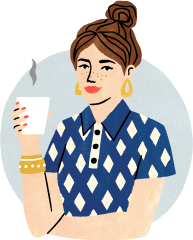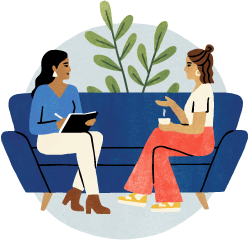Support Groups in Ballarat Central, VIC
A group of private practitioners who support each other in a professional sense.

Hosted by Mark Edward Roper
Clinical Social Work/Therapist, AMHSW
Verified Verified
Group meets in Ballarat Central, VIC 3350
Hi I'm Mark, a counsellor, therapist and motivator with years’ of experience in the mental health field. I've often worked with youth. Moreover, I've worked with people from varying social, economic and cultural backgrounds. I have particular expertise communicating with people dealing with anxieties, depression, relationship issues and traumas. Together we can begin to look for the gems in a person's character that will provide the beginning of their recovery process. Enhanced self esteem and better relationships, ultimately leads to better life outcomes.
More Groups Nearby
The Survivor Hub is a survivor-led, not-for-profit organisation that supports people who have been impacted by sexual assault. Bloom Well-being have partnered with SurvivorHub to bring FREE support groups to victim/survivors.

Hosted by Bloom Well-being
Clinical Social Work/Therapist, AASW
Verified Verified
Group meets in Ballarat East, VIC 3350
Are you struggling with relationships, either with yourself and others? Maybe you find it difficult to connect with your emotions and or your body? Our team have spent their entire careers dedicated to ongoing learning to ensure the people who enter our space feel seen, heard and believed. We specialise in supporting those who have experienced difficult childhoods, abusive adult relationships and/or traumatic life events. Sometimes difficulties include exposure to abuse/neglect (physical or emotional), or feeling as though you just "don't fit" in the world. At Bloom you're valued as the expert of your story and we walk alongside.
See more therapy options for Ballarat Central
FAQs - About Group Therapy and Support Groups
How can I find a support group in Ballarat Central?
Search for nearby support groups by inputting your city, postcode, or the name of the group into the search bar. From there, you can filter to find a group that suits your needs, whether you are looking for support for a teenager, a group that focuses on a specific issue, such as depression, or a particular program type, such as one geared toward developing social skills. To navigate between locations within the same country, enter a new city or postcode into the search bar.
How does group therapy work?
Therapy groups are led by one or more therapists and serve to help people process their experiences and learn from others who understand their challenges firsthand. They can be based on a specific issue, such as addiction, grief, physical illnesses, parenting, and caregiving. They can involve a specific type of program or therapy, such as a social skills group or CBT group. They can also be specific to a particular population or community, such as teens or LGBTQ.
Support groups, like Alcoholics Anonymous, also focus on a specific issue, but are typically led by members with lived experiences and are less structured than therapy groups. Most therapy groups will meet for a fixed length of time with a consistent group of members, while many support groups meet for an indefinite period of time with members coming and going.
Support groups, like Alcoholics Anonymous, also focus on a specific issue, but are typically led by members with lived experiences and are less structured than therapy groups. Most therapy groups will meet for a fixed length of time with a consistent group of members, while many support groups meet for an indefinite period of time with members coming and going.
What are the benefits of group therapy?
Support groups help connect people with shared challenges or physical and mental health conditions. In a group setting, participants can receive support and feedback from peers and can acquire new skills, strategies and perspectives by listening to one another. Discussing your experience with someone who also has a cancer diagnosis, or whose son also struggles with addiction, for example, can help you feel less alone, reduce distress, find empathy and connection, and learn practical or medical information that has helped others. Group therapy can also be a more affordable option than individual therapy and just as effective.
Is group therapy as effective as individual therapy?
Support groups can be deeply valuable for both emotional support and/or treatment outcomes. It’s difficult to make a blanket statement on efficacy due to the many different types of support groups and conditions treated, but group therapy has been found to be just as effective as individual therapy in establishing long-term abstinence for conditions such as substance abuse, addiction and alcohol abuse.
How much does group therapy cost?
Group counselling is typically less expensive than individual counselling, with each session costing on average between $80 to $110. Meanwhile, individual therapy sessions can run anywhere from $100 to $250. It is possible to find low-cost group therapy options and many therapists offer group sessions free of charge.
Does insurance cover group therapy?
If you have private insurance, your plan may cover some if not all of your group therapy sessions. You should contact your insurance provider to determine if they provide coverage for group therapy sessions and to determine what, if any, requirements they might have in order for your sessions to be covered, such as a referral from your GP or medical specialist.
How long does group therapy last?
The length of a support group session is often one hour but can fall anywhere between 45 minutes and two hours. The amount of time that people remain in a support group varies based on their specific needs and goals and the type of therapy. Some individuals may seek a shorter-term group, such as a bereavement group, that may last between six and 20 weeks. Some may seek a longer-term group that lasts for a year or indefinitely.
What are the limitations of support groups?
Support groups have many benefits, but there are a few limitations as well. Support groups do not constitute formal therapeutic or medical treatment, and are not run by licensed mental health professionals, so some people may opt for group therapy or individual therapy instead. Additionally, support groups can depend on the other participants, so a disruptive individual has the potential to mar the group dynamic, and the anecdotal information shared may sometimes be unhelpful or inaccurate. Because it is a group setting, confidentiality can be more difficult to guard and participants receive less personalized attention than they would in an individual therapy session.

